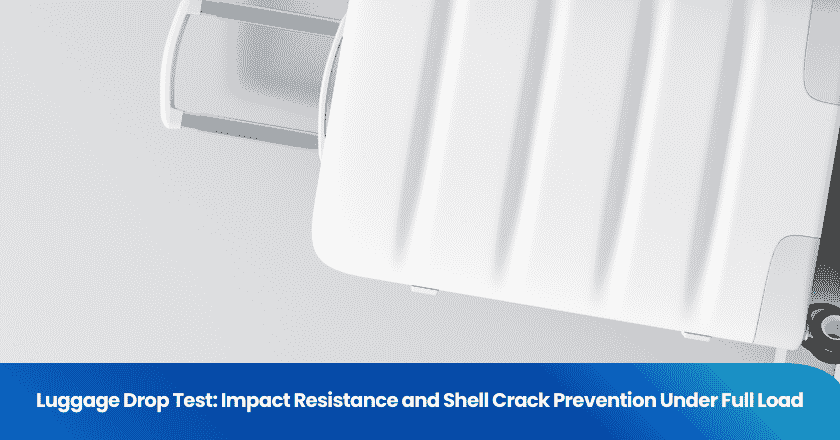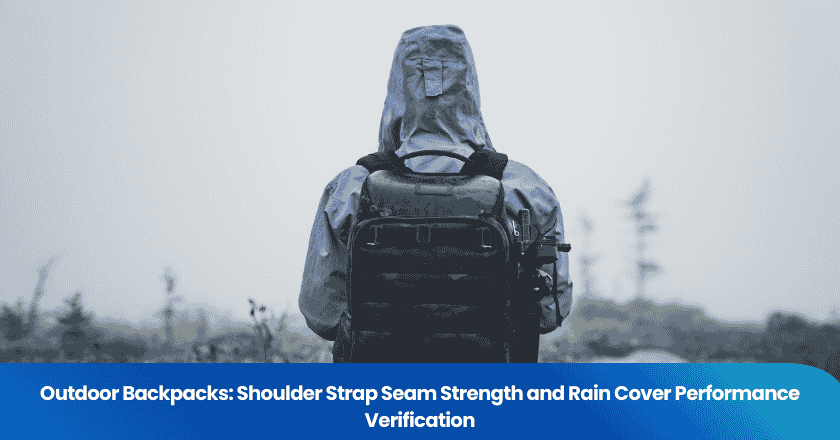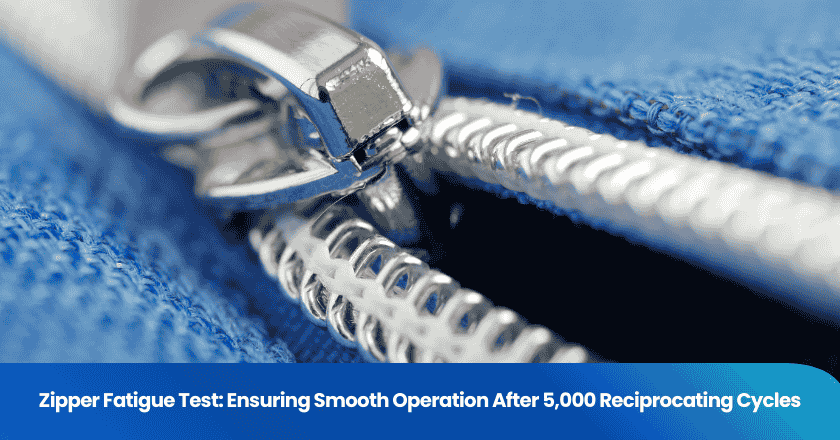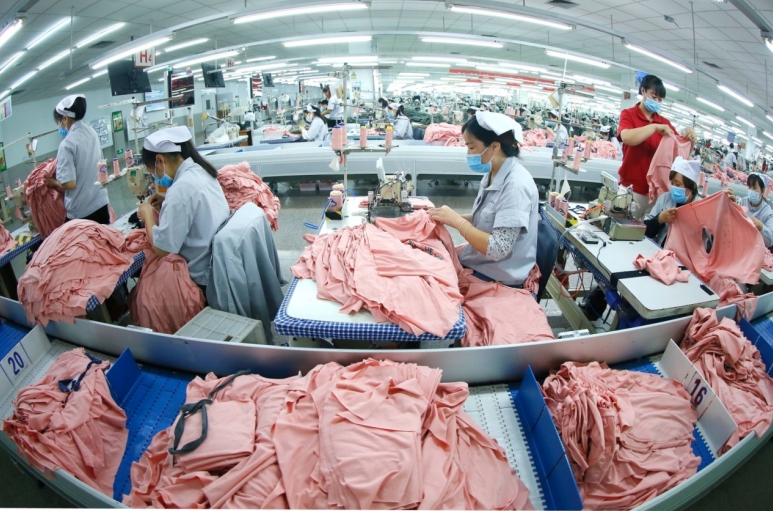
Among many sourcing destinations, China has become the main global procurement center due to its large production scale, perfect supply chain system, and rich product variety. However, for many foreign companies, direct procurement in China may face multiple challenges, such as language barriers, cultural differences, and unfamiliar markets.
The importance of global procurement cooperation
In the context of a globalized economy, international procurement cooperation has long been one of the important strategies for enterprise development. It has important significance in today's globalized economic environment, mainly reflected in the following aspects:
1. Optimize resource allocation
Global procurement allows companies to cross national boundaries and search for the best suppliers and raw material sources worldwide, optimizing resource allocation and reducing costs.
2. Improve supply chain efficiency
Through global procurement cooperation, enterprises can build a more flexible and efficient supply chain system, quickly respond to changes in market demand, and improve overall operational efficiency.
3. Enhance market competitiveness
Global procurement cooperation helps enterprises obtain higher quality and more competitive products and services, enhancing their competitiveness in domestic and foreign markets.
4. Promote technological innovation
Cooperation with international advanced suppliers can bring technological innovation opportunities to enterprises, promoting product upgrades and industrial upgrades.
5. Diversify risks
Global procurement cooperation helps enterprises to diversify supply chain risks and avoid the uncertainties brought by excessive dependence on a single market or supplier.
Overview of China as a Major Sourcing Center for China Product Sourcing Agent
China, as one of the important economies in the world, has become an important sourcing center for many multinational companies and international buyers.
The following are several key points of China as the main sourcing center:
1. The market scale is huge
China has a huge consumer market and manufacturing base, providing a rich choice and huge potential for global procurement.
2. Complete industrial chain
China has a complete industrial chain system, from raw material supply to production and processing to finished product sales, all links are closely connected, providing convenience for buyers.
3. Cost advantage is obvious
China's labor costs are relatively low, and the government has also provided a number of preferential policies to support foreign-funded enterprises and export enterprises, making China have a significant cost advantage in global procurement.
4. Continuous improvement of product quality
With the continuous advancement of technology and improvement of management level, the quality of China products is also constantly improving, meeting the needs of more and more international purchasers.
5. Infrastructure is well-developed
China's infrastructure construction is constantly improving, including transportation, logistics, and communication, providing good support and guarantee for global procurement.
The role of the purchasing agent in promoting international trade
As a bridge in international trade, the importance of the purchasing agent is increasingly prominent. It can not only help enterprises identify and evaluate potential products and suppliers, but also provide comprehensive services in negotiation, quality control, logistics, etc., effectively promoting the smooth progress of international trade.
Procurement agents play a crucial role in promoting international trade, which is specifically manifested in the following aspects:
1. Bridge role
As a bridge between buyers and sellers, the purchasing agent helps both parties overcome obstacles in language, culture, law, etc., and promotes the smooth progress of trade.
2. Professional support
The purchasing agent has rich international trade experience and professional knowledge, and can provide customers with professional market analysis, supplier evaluation, quality control and other comprehensive services to reduce the procurement risk of customers.
3. Cost control
Through large-scale procurement and negotiation skills, the purchasing agent can help customers reduce procurement costs and improve procurement efficiency.
4. Supply chain optimization
A purchasing agent can assist customers in optimizing the supply chain system, improving the flexibility and response speed of the supply chain, and meeting changes in market demand.
5. Market Expansion
A purchasing agent can represent clients in foreign markets for sales and promotional activities, exploring new customer groups and market sectors, and enhancing the international influence of the clients.
Procurement agents play an indispensable role in promoting international trade, providing enterprises with professional procurement services and comprehensive support.
The main responsibilities of the china product sourcing agent
The China product sourcing agent plays a crucial role in the procurement process, with main responsibilities including but not limited to the following aspects:
1. Product identification and evaluation
Market research: The purchasing agent must first conduct market research to understand the market situation of the required products, including supplier distribution, price trends, product quality, etc.
Product Identification: According to the needs of the purchaser, the purchasing agent needs to accurately identify the specifications, model, performance, and other requirements of the required product.
Supplier evaluation: Evaluate potential suppliers, including supplier qualifications, production capacity, product quality, after-sales service, etc., to ensure the selection of suitable suppliers.
2. Supplier negotiation and management
Price negotiation: Conduct price negotiations with suppliers to obtain the most favorable prices and terms, ensuring that the interests of the purchaser are protected.
Contract signing: Sign a purchasing contract with the supplier to clarify the rights and obligations of both parties and ensure the legality and compliance of the purchasing activities.
Supplier management: Conduct daily management of suppliers, including order tracking, delivery coordination, after-sales service follow-up, etc., to ensure the smooth progress of procurement activities.
3. Quality Control and Assurance
Quality standard setting: Work with the purchaser to establish product quality standards to ensure that the purchased products meet relevant requirements.
Quality inspection: Conduct quality inspection on the arrived products to ensure that the product quality meets the requirements. For non-conforming products, timely communicate with the supplier and take corresponding measures.
Quality feedback: Regularly provide feedback on product quality to the purchaser, so that the purchaser can timely understand the quality trends of the products and make corresponding adjustments.
4. Other responsibilities
Logistics coordination: Coordinate the logistics transportation between suppliers and purchasers to ensure that products are delivered to the destination on time and safely.
Document management: Responsible for organizing and archiving relevant documents during the procurement process to ensure the traceability of procurement activities.
Risk prevention and control: Identify potential risks in the procurement process and formulate corresponding prevention and control measures to reduce risks.
The advantages of using a china product sourcing agent
Using a china product sourcing agent can bring many benefits, and here are some of the main aspects:
1. Cost-effective
Professional procurement: The procurement agent has professional procurement knowledge and skills, and can reduce procurement costs through large-scale procurement and negotiation skills. According to data, companies that use procurement agents can enjoy discounts and reduce procurement costs through professional operations and bulk purchases.
Save labor costs: enterprises do not need to set up a special procurement department or equip a large number of procurement personnel, which can save labor costs and related expenses.
2. Risk Mitigation
Professional evaluation and screening: The purchasing agent can conduct professional evaluation and screening of suppliers to reduce the risk of cooperation with unreliable suppliers.
Quality Control: The purchasing agent is responsible for the quality control and inspection of products, ensuring that the purchased products meet the required quality standards, and reducing the risks associated with product quality issues.
Compliance guarantee: The procurement agent is familiar with relevant laws, regulations and trade rules, and can ensure the legal compliance of procurement activities and reduce compliance risks.
3. Save time
Efficient procurement process: The procurement agent has rich procurement experience and efficient procurement process, and can quickly respond to procurement needs and complete procurement tasks.
Reducing internal coordination time: enterprises do not need to spend too much time on internal coordination of procurement matters, and can devote more energy to core business.
4. Other benefits
Expanding supplier resources: The purchasing agent has a wide network of suppliers and resources, which can provide enterprises with more choices.
Enhancing procurement efficiency: By optimizing the procurement process and adopting advanced procurement management tools, the china product sourcing agent can improve procurement efficiency and reduce procurement costs.
Enhancing Market Competitiveness: Through high-quality procurement services, enterprises can obtain more competitive products and price advantages, thereby enhancing their market competitiveness.
Using a china product sourcing agent can bring multiple benefits such as cost efficiency, risk mitigation, time saving, etc., which helps companies improve procurement efficiency and market competitiveness.
The qualities that a china product sourcing agent should possess
As a bridge connecting suppliers and purchasers, the quality of the China product sourcing agent directly affects the efficiency and effectiveness of the procurement activities.
The following are the main qualities that a china product sourcing agent should possess:
1. Experience and professional knowledge
Rich industry experience: With years of experience in sourcing in the Chinese market, familiar with the procurement processes and norms of different industries, able to quickly understand and meet the needs of purchasers.
Profound professional knowledge: understanding the technical specifications, quality standards, market conditions, etc. of the products represented, able to provide customers with professional procurement advice and solutions.
Awareness of laws and regulations: Familiar with China and international trade regulations, quality standards, intellectual property protection and other laws and regulations, to ensure the legality and compliance of procurement activities.
2. Communication skills
Excellent negotiation skills: able to conduct effective negotiations with suppliers to obtain the most favorable prices and terms, while safeguarding the interests of the purchaser. Good coordination skills: coordinate resources from all parties during the procurement process, resolve potential issues, and ensure the smooth progress of procurement activities.
Clear communication skills: able to accurately convey supplier information to the purchaser, and also able to clearly express the purchaser's needs to the supplier.
3. Network and Connection
Extensive supplier network: With a large database of suppliers, it can quickly find suppliers that meet the needs of the purchaser.
Good relationships in the industry: Maintaining good relationships with suppliers, industry associations, government agencies, etc., helps to obtain more resources and information.
International perspective: understanding the dynamics and trends of the international market, able to provide more forward-looking procurement advice for purchasers.
4. Other important qualities
Integrity: Adhere to professional ethics, treat suppliers and purchasers fairly and impartially, and safeguard the interests of both parties.
Strong sense of responsibility: Responsible for the procurement activities to the end, ensuring the successful completion of the procurement task.
Continuous learning ability: The market environment and product technology are constantly changing, and the purchasing agent needs to have the ability to continue learning to keep up with the pace of the times.
Steps to hire a china product sourcing agent
Hiring a china product sourcing agent is a systematic process that requires careful planning and execution.
The steps to hire a china product sourcing agent usually include:
1. Clarify the procurement needs and objectives
Determine the specifications, quantity, quality requirements, and delivery date of the required products. Analyze the market situation and understand potential suppliers and product price trends.
2. Choose the right sourcing agent for China products
Market research: Learn about purchasing agents in the market through industry associations, online searches, peer recommendations, etc.
Qualification review: Check the business license, business qualifications, past performance, etc. of the purchasing agent to ensure that it is legal and compliant.
Comprehensive evaluation: Based on the experience, professional knowledge, service quality, price and other factors of the purchasing agent, a comprehensive evaluation is conducted to select the most suitable purchasing agent.
3. Sign a cooperation agreement
Engage in in-depth communication with the selected purchasing agent to clarify the rights and obligations of both parties. Sign a formal cooperation agreement, including terms such as service scope, service duration, fee settlement methods, and liability for breach of contract.
4. Develop and execute the purchasing plan
Work with the china product sourcing agent to develop a detailed procurement plan, including procurement timelines, supplier selection, negotiation strategies, etc. The procurement agent executes the procurement tasks according to the plan, negotiates with suppliers, and signs contracts.
5. Quality Control and Acceptance
The purchasing agent assists the purchaser in quality control to ensure that the quality of the purchased products meets the requirements. The arrival of products is inspected to ensure that the quantity, specifications, quality, etc. are correct.
6. Settlement and Payment
Settle the fees according to the cooperation agreement to ensure the safety and compliance of funds. Pay the service fee to the china product sourcing agent and pay the payment to the supplier.
7. Follow-up and evaluation
Follow up on procurement activities to ensure that suppliers fulfill their after-sales service commitments on time. Evaluate the service quality of the procurement agent to provide a reference for future cooperation.
Throughout the process, the purchaser should maintain close communication and collaboration with the china product sourcing agent to ensure the smooth progress of the procurement activities. The purchaser should also supervise and evaluate the work of the sourcing agent to ensure that responsibilities are fulfilled in accordance with the agreement requirements.
Managing the procurement schedule is also an important task. Party A should work with the china product sourcing agent to develop a detailed schedule, including tasks at each stage, responsible parties, and completion times. During the procurement process, both parties should closely monitor the progress to ensure tasks are completed on time. In case of unforeseen circumstances leading to schedule delays, the plan should be adjusted promptly and relevant parties should be notified.
How does Party A guide the procurement process? What details need to be paid attention to?
When guiding the procurement process, Party A should play a leading role to ensure that the entire procurement process is efficient, transparent, and compliant. Here are some key steps and details to pay attention to:
Key steps to guide the procurement process:
1. Clarify the procurement needs and objectives:
Determine the specific specifications, quantity, quality requirements, and delivery date of the required products.
- Analyze market conditions and understand potential suppliers and product price trends.
2. Develop a purchasing plan:
Based on the needs and goals, formulate a detailed procurement plan, including budget, procurement schedule, risk assessment, etc.
Clearly define procurement strategies, such as centralized procurement, decentralized procurement, or long-term cooperation.
3. Choose a sourcing agent (if applicable):
- Evaluate and select a suitable China product sourcing agent, ensuring they possess professional knowledge and experience.
- Clarify the details of cooperation with the purchasing agent, including agency fees, service scope, communication mechanism, etc.
4. Supplier evaluation and selection:
- Organize or assist the purchasing agent in supplier evaluation, including qualification review, sample testing, production capacity inspection, etc.
Based on the evaluation results, select the most suitable supplier.
5. Contract Signing and Execution:
- Negotiate with suppliers and sign purchasing contracts, clarifying the rights and obligations of both parties.
Monitor the execution of the contract to ensure that the supplier completes the delivery on time and with quality.
6. Quality Control and Acceptance:
Establish quality control standards and conduct quality inspections on products provided by suppliers.
- Handle non-conforming products to ensure that purchased products meet quality requirements.
7. Payment and Settlement:
- Make payments and settlements as agreed in the contract to ensure smooth cash flow.
Keep relevant vouchers and records for subsequent audits or dispute resolution.
Details to be noted:
- Demand clarity: Ensure that procurement requirements are clear and specific, avoiding problems caused by ambiguity or ambiguity.
Comprehensiveness of supplier evaluation: Evaluate suppliers from multiple aspects such as qualifications, capabilities, and reputation to reduce procurement risks.
The rigor of contract terms: The contract terms should be detailed and clear, covering all key matters to avoid future disputes.
Strictness of quality control: Establish a strict quality control system to ensure that the purchased products meet the quality standards.
Timeliness of Communication and Coordination: Maintain close communication with the china product sourcing agent and suppliers to solve problems and adjust plans in a timely manner.
How to establish clear communication channels?
Establishing clear communication channels is the key to ensuring the smooth progress of the procurement process.
Here are some suggestions:
1. Clarify the communication goal: Before communicating, clarify the purpose of the communication and the desired outcome to avoid ineffective communication.
2. Choose the appropriate communication method: Select the appropriate communication method based on the urgency and importance of the communication content, such as telephone, email, video conference, etc.
3. Use simple and clear language: Avoid using overly specialized or complex terms, and try to express your intentions using easy-to-understand vocabulary.
4. Establish a regular communication mechanism: Agree on regular communication time and frequency with the china product sourcing agent and suppliers, such as weekly or monthly meetings, to ensure information synchronization.
5. Maintain an open and respectful attitude: Keep an open mind during communication, respect the opinions and viewpoints of others, and actively seek common ground.
6. Record communication content: Record important communication content for future reference and tracking.
7. Using technical tools to assist communication: such as project management software, instant messaging tools, etc., can improve communication efficiency and accuracy.
How to manage the procurement schedule? How to plan and schedule?
Managing the procurement schedule
According to the procurement plan, a detailed schedule is formulated, including the start and end times of tasks at each stage. When making the schedule, potential risk factors such as supplier delivery delays, logistics issues, etc., are fully considered, and buffer time is reserved.
Planning and Scheduling
Allocate manpower, resources, and other resources according to the importance and urgency of the procurement task. Prioritize the procurement tasks to ensure that key tasks are handled first. Assign procurement tasks to the appropriate team members or to a china product sourcing agent for execution.
How to monitor the progress? How to adjust the progress?
Monitoring progress:
1.Regular tracking
Regularly track and evaluate the procurement progress to ensure that all tasks are carried out as planned.
2. Use project management tools
Monitor the progress and status of purchases in real-time with tools such as project management software.
3. Keep communication with suppliers
Keep close communication with suppliers to timely understand their production progress and delivery plans.
Adjustment Progress:
1.Identify deviations
Once a deviation in the procurement progress is discovered, promptly identify the cause and scope of the deviation.
2. Formulate adjustment plans
Based on the deviation, formulate adjustment plans, such as increasing manpower, adjusting production plans, etc.
3. Communication confirmation
Communicate the adjustment plan with the china product sourcing agent, suppliers and other relevant parties for confirmation, to ensure that all parties understand and agree with the adjustment plan.
4. Implement the adjustment plan
Execute the procurement plan according to the adjustment plan to ensure the procurement task is completed on time.
Law and ethics in product sourcing cooperation
When cooperating with a china product sourcing agent, legal and ethical issues cannot be ignored.
Both parties should strictly abide by China's import and export laws and other compliance requirements to ensure the legality of procurement activities. Both parties should also pay attention to contractual obligations and responsibilities, clarify their respective rights and obligations, and avoid potential disputes.
In addition to legal issues, ethical issues should also be paid attention to. Party A should ensure that procurement activities comply with the requirements of fair labor practices and avoid cooperation with suppliers who have unethical behavior. The procurement agent should also uphold the principles of integrity and fairness to provide quality services for Party A.
Effective cooperation is crucial for the joint success with the china product sourcing agent.
By implementing the above steps, companies can establish a solid partnership, achieve procurement goals while reducing risks and improving efficiency.
We encourage all readers seeking cooperation with the China market to seriously consider and adopt these strategies to ensure their sourcing efforts achieve long-term success.
Finally, the key to establishing a successful partnership with a china product sourcing agent lies in continuous communication, mutual trust, and shared goal setting, which will lead to a mutually beneficial and win-win outcome for both parties.
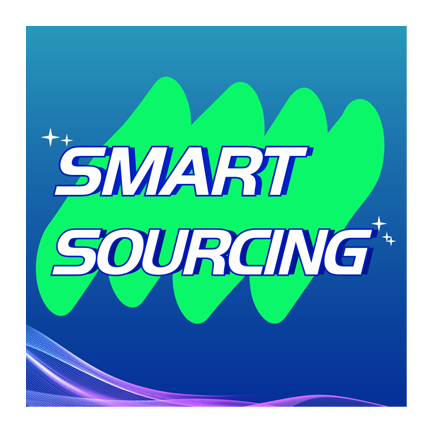
Smart Sourcing Content Team
Article by Smart Sourcing Content Team
The Smart Sourcing Content Team is committed to delivering high-quality, easy-to-understand information that helps our audience navigate the complexities of global sourcing. Our team of writers has extensive experience in producing articles across various fields such as procurement, supply chain management, market trends, and industry best practices. We specialize in sectors like apparel, textiles, and consumer goods, providing targeted insights to help businesses in these industries optimize their sourcing strategies and stay competitive.
Grow your business with TradeAider Service
Click the button below to directly enter the TradeAider Service System. The simple steps from booking and payment to receiving reports are easy to operate.

